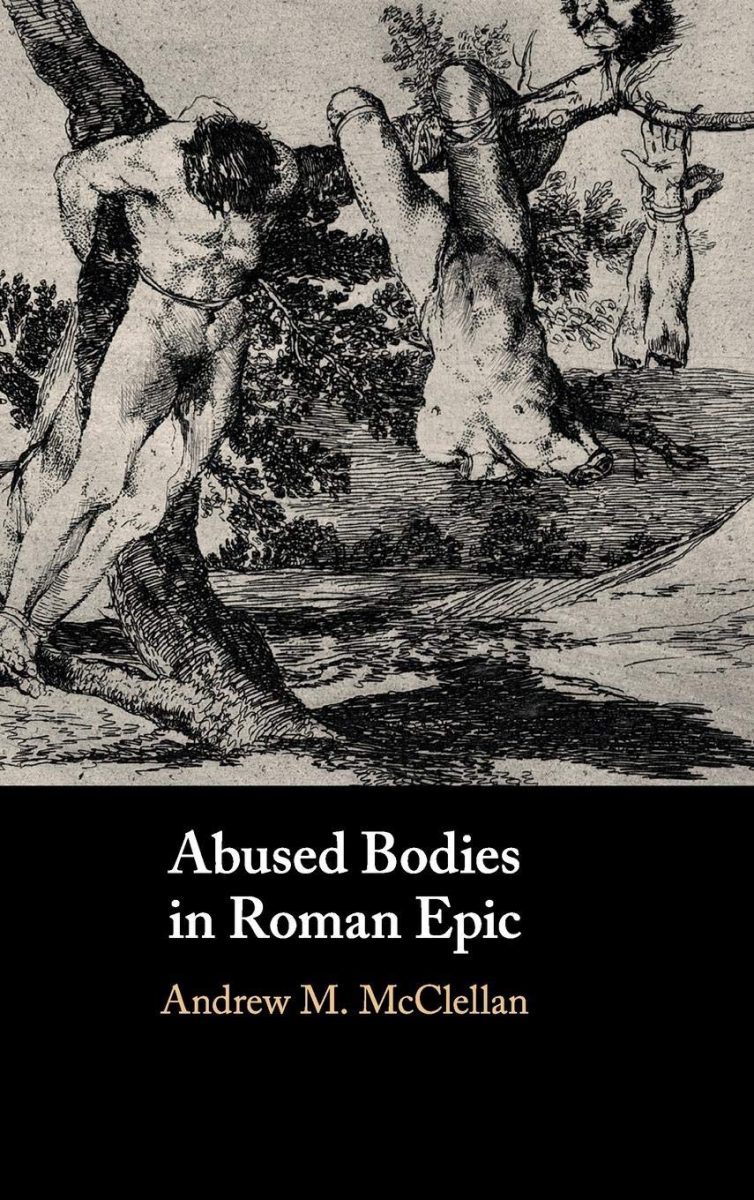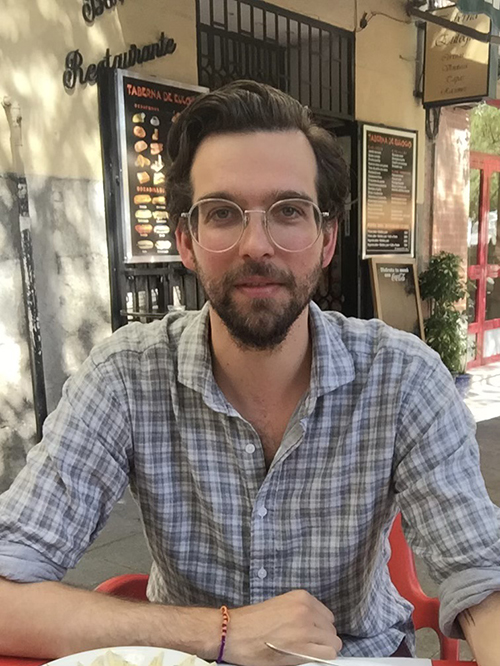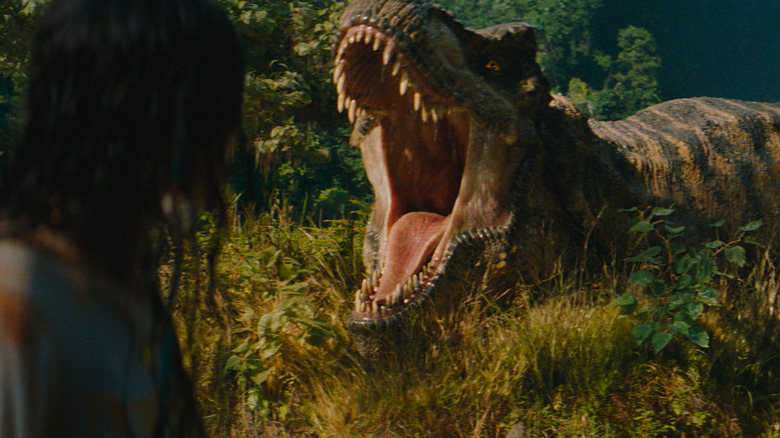Professor Andrew McClellan, Ph.D., was miming eyeballs being removed from his head. The windowless soul is swimming hard. This unfortunate oyster diver was diving for his lost eyeballs.
McClellan was miming a jab by one character of Homer’s “The Iliad” as he killed another. This scene might be gruesome for the average reader; however, McClellan teaches it with a smile on his face. Gore is McClellan’s specialty, and this scene is one of his favorites.
“All of my favorite things are about mortality and death because they are something we all get, everything comes back to it,” McClellan said.
The integral nature of death to the human experience is where McClellan’s interest in the subject arises. He is fascinated by the violence in the cultural context of what it means in the ritual surrounding death. McClellan drew on modern understandings of what we do when someone we care about dies.
“We want them properly buried and ancient people were not any different,” McClellan said.
When someone went against tradition and destroyed a body, it prevented the soul from moving on. McClellan feels this concept makes it essential to study the abuse of corpses to understand the mindset of the Greeks and Romans in antiquity.
His book “Abused Bodies in Roman Epic” dives into an exploration of instances of this corpse abuse and how it relates to Greek and Roman epic poetry.
It is an essential concept in understanding the classics to McClellan, yet nothing existed written on it. He wrote his book to fill this gap he saw in the study of abused bodies.
“I wanted the cover to be this Francisco Goya etching where it is really gnarly and the book is gnarly. I mean it is about abused bodies,” McClellan said.
This cover was a fight with McClellan’s editor who thought the cover would be too gory for readers. Goya is McClellan’s favorite artist and it was worth it to him to fight for Goya’s work to be on the cover of his book.

“I start with “The Iliad” because as I talk about what happens to dead bodies, it is such a critical part of the story,” said McClellan. McClellan describes “The Iliad” as having influenced many works of literature both in the ancient world and in modern storytelling.
“When you go into a field you typically want to focus on the flowers and the grass, I am more interested in the roots,” McClellan said.
McClellan began working on his novel in 2012 when many videos were being released by ISIS depicting the mutilation of bodies. Seeing these videos, McClellan says, influenced a great deal of the start of his novel. He saw the mistreatment of bodies on both the ISIS side and against ISIS soldiers and realized how the abuse of the bodies of our enemies remains a theme of war even 3000 years after the time of “The Iliad.”
“I wanted to try to use the real world to try to get at some of the topics of the poems that were written 2,000-3,000 years ago,” McClellan said.
The project did not start because of the videos yet the emotional reaction to seeing the videos influenced McClellan in how he would dictate the connection of the novel to our modern reality.
Themes that appear in classical literature yet remain present in the modern day are of great interest to McClellan.
The book is primarily focused on Latin epic. “The Iliad” is used to set up the framework for later references and stories discussed by McClellan. The book dives into Roman epics like Virgil’s “Aeneid” to showcase how many of these epic pieces of literature often use death as a focal point.
It all comes back to the human condition for McClellan.
“Even though this stuff was written 2,000 years ago, it speaks to big ideas that haven’t changed at all,” McClellan said.
“A big point of interest is seeing the connected threads that draw lines between the ancient mindset and the modern world; we haven’t changed that much as a species,” McClellan added.
This lack of change is a primary reason McClellan believes it is so important to study ancient work.
While McClellan always knew he wanted to be a teacher, it is his belief that he “has a moral obligation to talk about this stuff,” that drives him to continue teaching.
“His teaching refrains from traditional teaching and favors a discussion-based environment. He makes it fun and engaging for everybody; it makes it easier to engage with the class,” Ainsley Holt, a student in McClellan’s class, said.
On the first day of class, McClellan asked his students why they took his class, and more than half the class said they thought it would be fun because of their love of Percy Jackson. McClellan said he read one of the novels and saw why so many students found interest in it.
“Riordan talks about a monster only found in one little poem in Greek mythology,” McClellan said.
On the first day of class, every student received a personal acknowledgment and an introduction from McClellan. He responded to each student, finding a connection with everyone in the class. McClellan acted scenes out, swore, encouraged student questions, wrote all over the board and ranted about the stupidity of certain characters all in an hour.
“I just got a course passed all about hell and the underworld,” McClellan said.
This course, which will be offered in the spring, will start with the “Epic of Gilgamesh” and explore themes of hell in the Mesopotamian, Greek, Roman, Egyptian and Christian traditions.
McClellan found his love for literature not in the classics, but in comics. For others who love comics, he recommends the works of Neil Gaiman. In particular, Neil Gaiman’s work “The Sandman” stood out to McClellan.
“The Sandman” show adaptation is also great in McClellan’s opinion. He found the episode taking place in hell interesting because it showed the intersection between multiple traditions including Norse gods, Greek gods and the Christian God to name a few.
The show “Kaos” on Netflix is one McClellan recommended to those who want to understand the dynamics of the Greek gods in a modern retelling.
“You don’t need to know the myths to enjoy the show,” he said.
For those who know the myth, McClellan said the show is fun for connecting different myths and seeing the themes of Greek myth play out humorously.
“I watched the majority of the six or eight episodes on a cross-country flight,” McClellan added.
Back in the classroom, McClellan encouraged his students to engage with the material outside the classroom by watching and reading these media pieces. He hopes his students find as much enjoyment in connecting the media to the epics as he does.
“I want my students to see the importance of literary and artistic violence as it is where mortality becomes the most visceral,” McClellan said.






